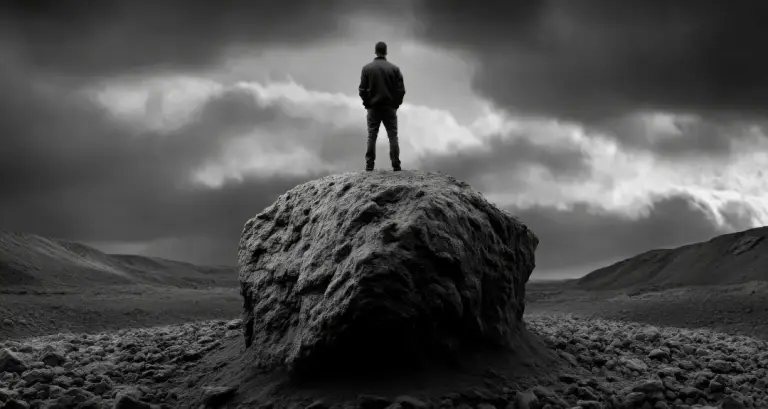Do you feel the ground shifting under your feet? President Trump’s Executive Order on March 20 to move toward ending the Department of Education is just one data point contributing to a veritable earthquake in education. While the “quaking” has been going on at least since the pandemic, let’s first turn our attention to the President’s latest action, and what it means.
President Trump’s order directs the Secretary of Education, within the confines of the law, to:
take all necessary steps to facilitate the closure of the Department of Education and return authority over education to the States and local communities while ensuring the effective and uninterrupted delivery of services, programs, and benefits on which Americans rely.
This sounds straightforward, but President Trump knows that he cannot end the Department of Education with the stroke of a pen. It was created by Congress in 1979 and therefore has to be “uncreated” by Congress. Trump has already moved to lay off 50% of the department’s workforce, but that move is being challenged in court. Opponents allege it’s essentially an illegal attempt to impair the congressionally mandated functions of the department without congressional approval.
As I’ve written before, ending the DOE will be difficult as it would require 60 votes in the Senate—a seemingly impossible threshold under current circumstances. And the administration’s attempts to otherwise gut or transfer responsibilities from DOE may be bottled up in court for months or years. That being said, here is a general outline of what the administration is proposing regarding various DOE functions:
- Student loans: the administration has announced that they are moving responsibility for the student loan portfolio to the Small Business Administration.
- Title I: The president has said that Title I funding for schools in low-income areas will be preserved in full, possibly as block grants to the states or administered by a different department.
- IDEA: The administration has stated that funding to support programs for 7.5 million students with disabilities will also be preserved in full, and their current plan is to transfer responsibility to the Department of Health and Human Services.
- Title IX: Most observers believe that Title IX enforcement would be moved to the Department of Justice.
- FAFSA: The administration has said that Pell Grants would continue to be fully funded, and several observers have suggested that the obvious destination for the Federal Application for Student Aid (FAFSA) and Pell Grants would be the Treasury Department.
We will monitor how all this plays out in Congress and the courts (The American Federation of Teachers has already sued to block it). But with all the attention focused on national politics, a much more substantive sea change is happening in states, communities, and millions of individual families that will likely have far more consequences than a file cabinet full of executive orders. I’ll call it the “grand decentralization” of American K-12 education. To understand what’s going on, add the following data points to President Trump’s actions:
- School Choice Explosion: At least 30 states offer programs that offer choices for some students, like educational savings accounts, vouchers, or tax credits. Fourteen states now allow all, or nearly all, students in their states to apply government dollars to private education. According to EdChoice, 40% of U.S. K-12 students are eligible to participate in a private school choice program.
- Homeschooling Boom: The U.S. Census Bureau pegs homeschooling at 6% of students in 2022–23, up from 2.8% in 2019—a doubling to 2.5–3 million kids, with growth holding steady into 2025.
- Charter School Surge: Charter enrollment has grown over 11% since 2019, while traditional public school enrollment has dropped by nearly 2 million students. And many more families want to get their kids out—a classical charter school near me has a waiting list of over 1,000 students.
Yet another quake looms. A coming Supreme Court ruling could potentially render all of these dynamics as minor tremors. In April, the court is preparing to hear Oklahoma Statewide Charter School Board v. Drummond, which has the potential to dramatically shift a fundamental principle of public education in our nation.
What if religious schools could be funded by public funds…and stay religious? That is one potential outcome of this case—one in which the Oklahoma Statewide Virtual Charter School Board initially granted a charter to St. Isidore of Seville Catholic Virtual School. However, Oklahoma Attorney General Gentner Drummond sued, arguing that the charter violated the Establishment Clause of the Constitution, as well as the Oklahoma state constitution’s prohibition on public funds for religious institutions. The Oklahoma Supreme Court sided with Drummond in June of last year, so all eyes are now on the U.S. Supreme Court. Interestingly, Justice Amy Coney Barrett has recused herself from the case, likely due to close ties to Notre Dame Law School and its Religious Liberty Clinic, which represents St. Isidore. As a result, it would only take four justices to rule against St. Isidore and essentially maintain the status quo.
However, Supreme Court precedent suggests that St. Isidore has a realistic chance at a favorable ruling. Several recent rulings have “repeatedly struck down state actions that exclude religious schools or organizations from receiving otherwise available public benefits solely because they are religious.”
A victory for St. Isidore would open up a Pandora’s Box of difficult questions:
- Would it open the door for Islamic madrassas or Wiccan schools to be state-funded?
- Would religious charter schools be required to take students regardless of religious belief?
- Would some states respond by repealing charter laws and thus limit current options?
- Would we see an explosion of faith-based schools that would dramatically shift education jobs from the public to the private sector?
As a Christian, the thought of millions more U.S. students receiving an explicitly Christian education is exciting. Could this bring revival and renewed hope to our national experiment? But over time, would the entanglement of government money dilute the faith of those schools, compromise the curriculum, and produce a watered-down education that inoculates students away from faith rather than discipling them into it?
No one knows the future, but if you are currently feeling the foundations of K-12 education shake, it may only be a foreshock of what is to come.
At my traditional public high school in California, I felt unshakeable as the longest-tenured social science teacher (I prefer “social studies”—I taught history, not science!). I often joked that I had the most secure job in the world—but it didn’t really feel like a joke. Back then, it would have been very difficult to fire me unless I did something egregious. Of course, that was prior to the gender issue being used as a litmus test for many educators—affirm a student’s gender confusion or lose your job!
However, for many educators, job security has vanished along with the millions of students no longer in traditional public schools.
If you are feeling tremors beneath your feet, let me remind you that your security was never in a teaching job. Your security is in a sovereign God who loves and provides for you, as you seek first His kingdom. He placed you in your current job on purpose, and He can place you in a new one. Or like me, He can pull you out of your classroom (or school) altogether. John Wimber was famous for saying, “I am change in God’s pocket. He can spend me how He wants.” I know that sounds terrifying to some because it challenges our illusion of control. But surrendering control and simply placing our childlike trust in our loving Father is the way to peace and joy. May this “earthquake” shake off those things we need to surrender so only the unshakeable remains.

David Schmus is the Executive Director of Christian Educators.
Click the button below to learn more about David Schmus.
Free to Teach is written to inform, encourage, and inspire Christian educators serving in our public schools. It should not be construed as legal advice provided by an attorney.
Want More Free to Teach?
Subscribe
Get Free to Teach delivered to your inbox.



One Response
Excellent writing again. Thanks for sorting through the current chaos. You made it as clear as it can be!